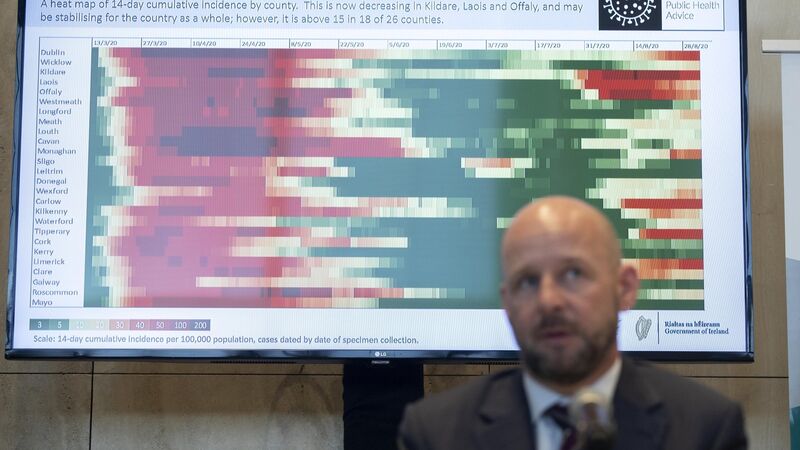NPHET to consider enhanced contact tracing to pinpoint where Covid-19 cases are transmitted

The Nphet The Of Identify Riskiest For Retrospective Enhanced That Tracing Help Locations Spread Consider The To Activities Will Contact And Virus Are
Health officials will discuss enhanced contact tracing this week to try and work out where people picked up Covid-19.
It comes as the incidence rate of the virus nationally has increased again.
The current contact tracing system means if you test positive for Covid, you will get a call asking where you have been in the two days before you got symptoms.
If health officials cannot pinpoint what setting the case is linked to it is recorded as community transmission.
That accounted for 60 of yesterday's 430 new infections, the highest daily increase since the end of April.
This week, NPHET will consider enhanced retrospective contact tracing to help identify the activities and locations that are riskiest for the spread of the virus.
Professor Sam McConkey says there is a lot that can be done locally.
"We need local teams of contact tracers asking 'where have you been for the last two weeks?' and then going to those businesses and homes that the people who have Covid have been to and saying 'maybe you should do a deep clean, here is the cleaning materials, here's someone who can help you with the clean'.
"Maybe all the people living in those homes and working in the businesses need to be on high alert for the fact that they might get Covid and if any of them are close contacts to stay self-isolated."
This comes as the 14-day incidence for Covid-19 has risen again from 80 to 84 cases per 100,000.
In the two counties under level three restrictions, Donegal has risen from 178 to 185, and Dublin from 148 to 152.
In the other areas being watched by NPHET, Waterford has gone from 67 to 86; Galway from 45 to 54; Louth from 94 to 104 and Cork from 52 to 62.